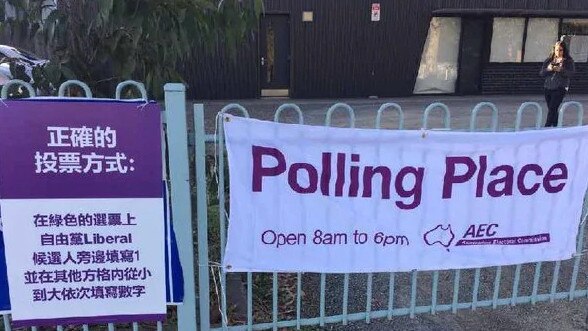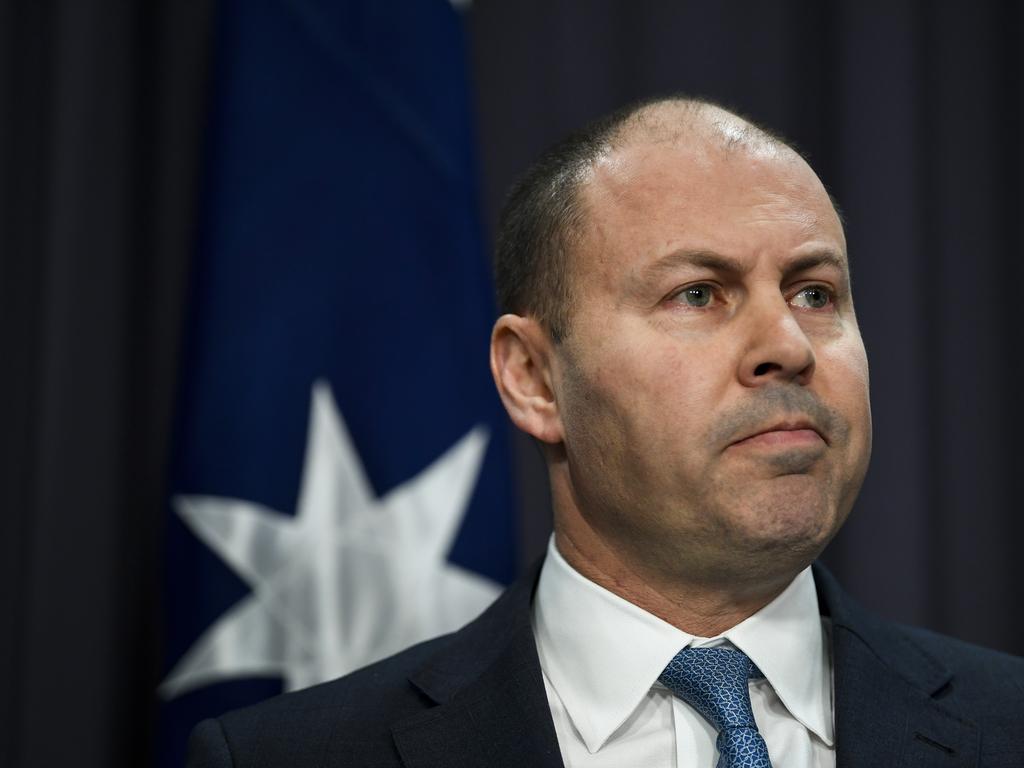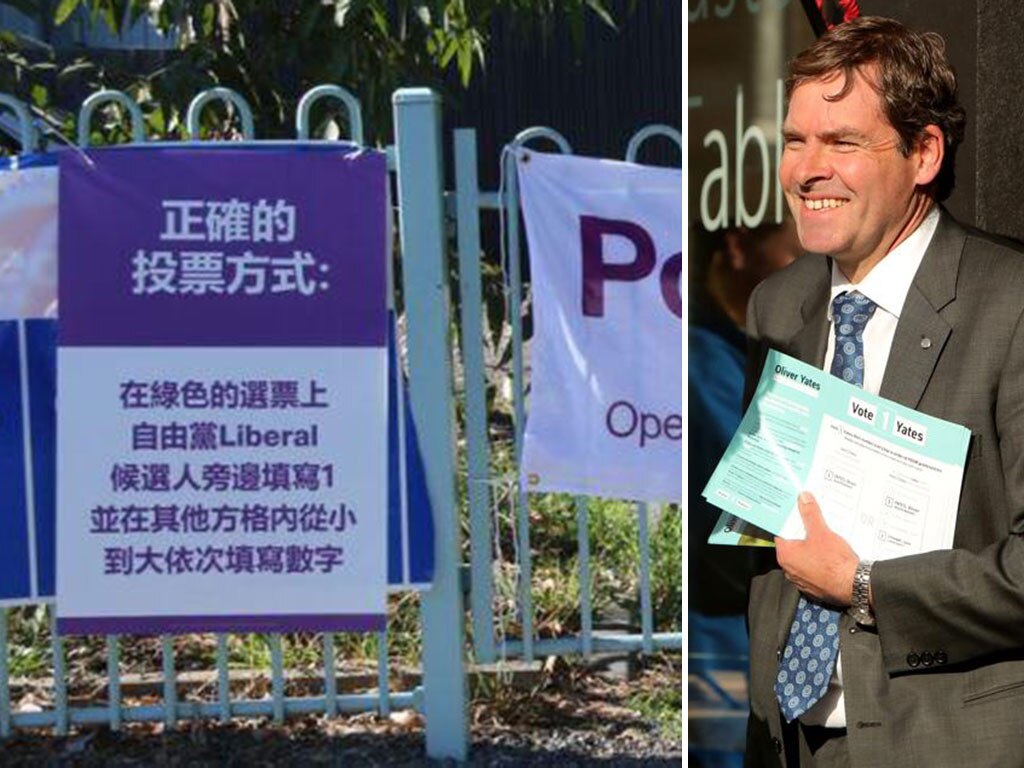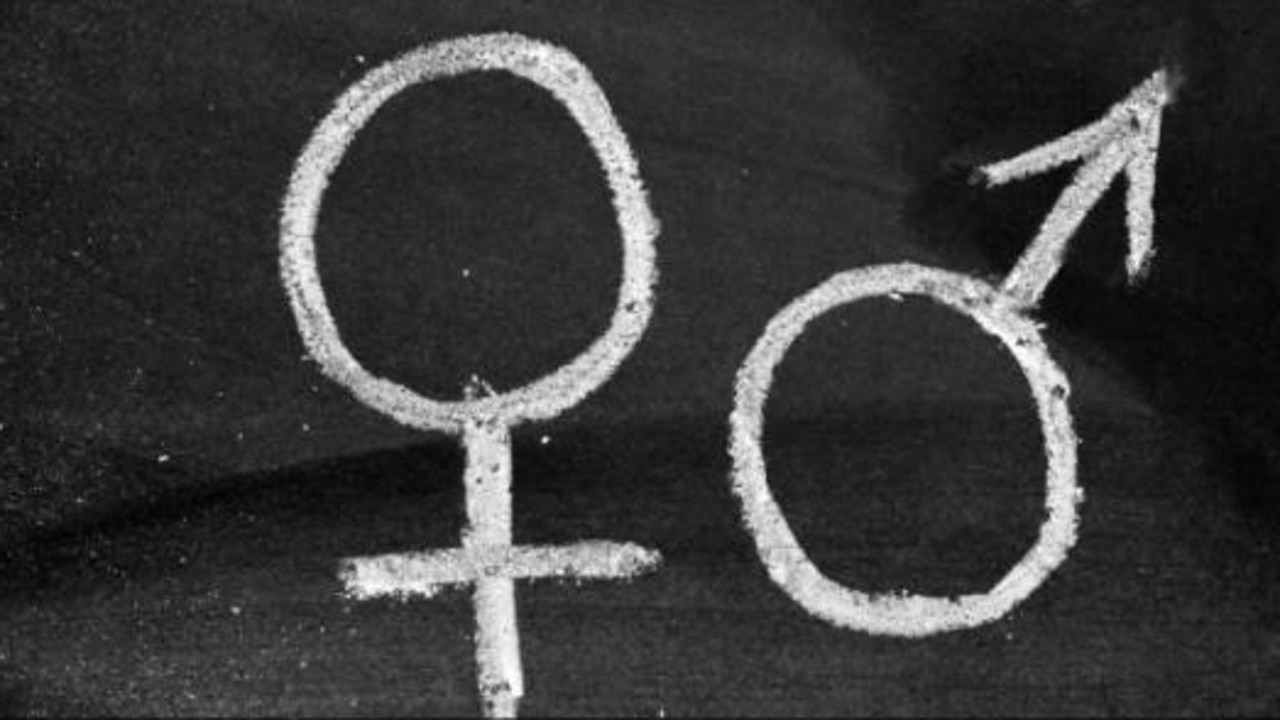Ex-Liberal boss Simon Frost could face High Court over signs
Simon Frost may be referred to the High Court over federal election advertising aimed at Chinese-Australian voters.

Former Victorian Liberal Party state director Simon Frost may be referred to the High Court on Thursday for his involvement in Chinese-language Liberal Party signage designed to look like official Australian Electoral Commission information.
Failed Kooyong candidate Oliver Yates challenged Josh Frydenberg’s election result arguing voters were misled by Chinese corflutes that featured the same colour scheme traditionally used by the Australian Electoral Commission.

The signs instructed Chinese-Australians to put a “1” next to the Liberal candidate.
The Federal Court, sitting as the Court of Disputed Returns, dismissed the case in December and will hand down judgment on costs on Thursday.
Mr Yates, the former Clean Energy Finance Corporation chief, claimed 8.98 per cent of the primary vote compared to Mr Frydenberg’s 49.41 per cent.
Mr Frost, now a senior adviser to Mr Frydenberg, conceded in court that the signs were “intended to convey the impression” that they had been produced by the AEC.
Mr Frost told the court he had intended the message to read: “To make your vote count, put a 1 next to the Liberal candidate”.
The traditional Mandarin sign was translated in court as: "Correct voting method: On the green ballot paper put 1 next to the Liberal Party. The other boxes can be numbered from smallest to highest."
The AEC dismissed complaints about the signs on election day, saying the signs were authorised by the Liberal Party and there were no rules about colour schemes.
Mr Frost was asked by the court to explain why his actions regarding the signs don’t breach the Electoral Act.
Unionist and environmental campaigner Vanessa Garbett pursued a concurrent challenge against Chisholm Liberal MP Gladys Liu on the same grounds which was also dismissed.
Mr Frydenberg is facing a separate legal challenge over alleged dual citizenship because of his Hungarian-born mother, a court has been told.
Kooyong resident Michael Staindl claims Mr Frydenberg falls foul of Australia's constitution because he is entitled to Hungarian citizenship through his mother.
Erica Strauss, also known as Erika Strausz or Erika Strauss, was born in Budapest in 1943.
But her family fled Hungary's communist regime when she was six.
Mr Frydenberg's lawyers say the challenge is baseless because the Strauss family was recognised as stateless when they docked at Western Australia in December 1950.
The three judges overseeing the case have reserved their judgment and will hand down a decision at a later date.





To join the conversation, please log in. Don't have an account? Register
Join the conversation, you are commenting as Logout